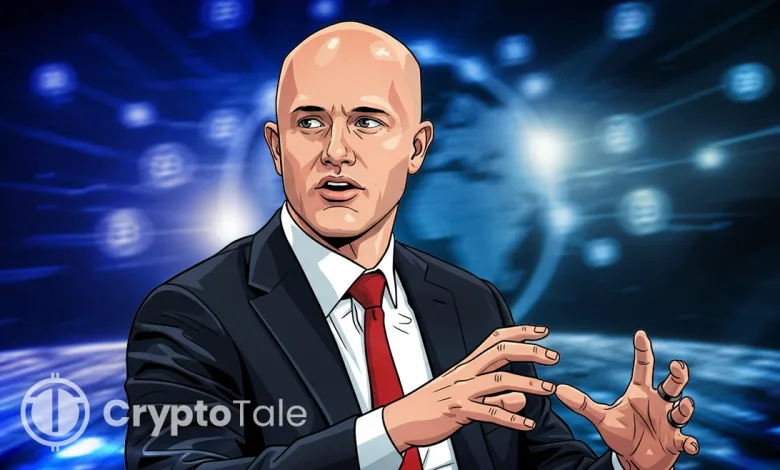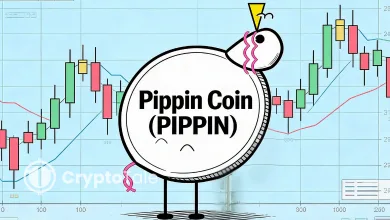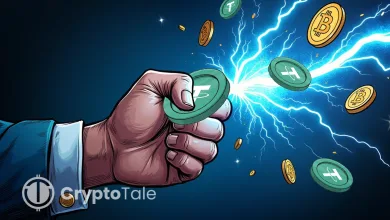Coinbase Chief Claims Crypto Expands Financial Autonomy Worldwide

- Armstrong says crypto expands economic freedom by reducing reliance on centralized finance.
- Poland’s growth under capitalism is contrasted with Venezuela’s decline under socialism.
- Armstrong stresses that small purchases allow new investors to enter cryptocurrency markets.
Coinbase CEO Brian Armstrong says crypto injects capitalism and economic freedom worldwide, sparking debate over how digital assets interact with socialism, inequality, and market integrity.
Brian Armstrong recently argued on X that cryptocurrency “injects economic freedom into every country,” helping spread capitalism and opportunity worldwide. He linked that claim to a long-term chart comparing GDP per capita in Poland and Venezuela, framing Poland’s recent growth as a “capitalist miracle” and Venezuela’s collapse as the result of socialism.
Armstrong spiked comments by Venezuelan opposition leader and Nobel laureate Maria Corina Machado, who warned that socialism erodes individual freedom and economic autonomy.
Her statements included a description of how Venezuelan voters accepted the socialist project of Hugo Chavez and faced a massive crisis, including hyperinflation and mass emigration. Armstrong echoed her opinion that socialism elevates the state above the citizen and restricts individual choice.
In addition, supporters of Armstrong’s argument view crypto as a way of safeguarding savings from inflation and capital controls in weak economies. They highlight the new ways people can transfer value across borders without banks or stringent currency regimes.
Bitcoin accessibility message and $1 million price prediction
Alongside the economic freedom message, Armstrong has tried to counter the idea that Bitcoin and Ethereum are only for the wealthy. He told followers they do not need to buy a full Bitcoin or Ether and can start with a few dollars. He said it is “never too late” to begin buying and holding crypto, urging small investors and business owners to participate in the digital economy.
Armstrong has also repeated a bold forecast that Bitcoin could reach $1 million by 2030. In recent interviews, he said there is a “good chance” of that outcome if regulatory clarity improves, the U.S. maintains a strategic Bitcoin reserve, and institutional demand through exchange-traded funds continues to grow. Bitcoin trades near $106,000 today, far below that target, and remains volatile despite its “digital gold” narrative.
Armstrong links his price view back to his economic freedom theme. He argues that decentralized finance can let anyone with a phone and internet connection save, borrow, lend, and trade with low fees. In his view, access can help people in countries with high inflation or limited banking options gain more control over their money.
Related: Coinbase Urges Treasury to Stay True to GENIUS Act Goals
Prediction market stunt raises questions on market integrity
Armstrong’s advocacy for open markets has faced new scrutiny after Coinbase’s latest quarterly earnings call. At the end of the Q3 2025 call, he abruptly listed the words “Bitcoin, Ethereum, blockchain, staking, and Web3.” Those exact terms matched “mention market” contracts on prediction platforms Kalshi and Polymarket, where traders had wagered roughly $84,000 on which words he would say.
The off-script sign-off allowed some bets to pay out and drew criticism from market professionals, who said the move showed how easily such markets can be influenced when participants control the outcome. Armstrong later posted that the moment “was fun” and came after someone on his team shared a link to the prediction markets during the call. Coinbase said employees may not trade in markets tied to the company’s own events.
The speculation highlights emerging questions about integrity standards in prediction markets and how executives should interact with them. At the same time, Armstrong continues to position cryptocurrency as a tool for economic freedom and market capitalism, even as regulators, investors, and critics debate the risks, ethics, and distributional effects of that vision




